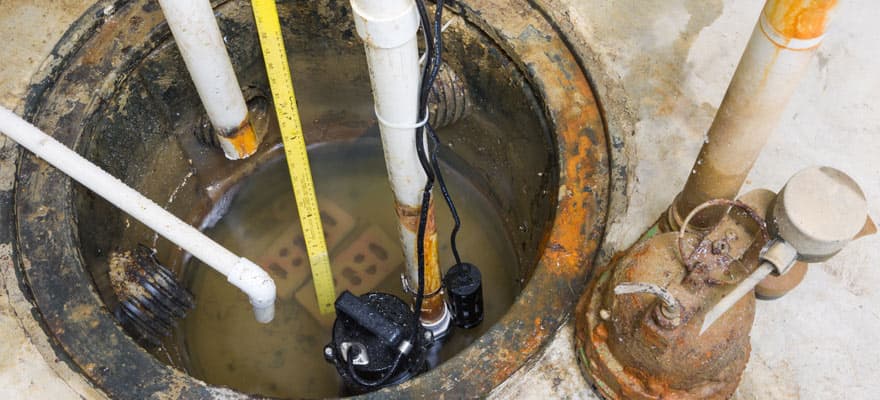Comprehending the Trick Components of Effective Water Purification Equipments

Value of Water Filtering Equipment
Water filtration systems play an important role in guaranteeing access to safe and tidy drinking water by effectively getting rid of contaminations and contaminants. These systems are essential in resolving the growing concerns over water top quality and the prospective health threats connected with consuming infected water. By utilizing numerous filtering systems such as reverse osmosis, turned on carbon, and UV sanitation, water filtration systems can effectively eliminate dangerous compounds like bacteria, viruses, hefty metals, and chemicals from the water system.
Additionally, water filtration systems assist to boost the taste and smell of water by eliminating chlorine, debris, and various other pollutants that can influence its quality. Water Treatment. This improvement in water quality not just makes it more palatable yet likewise urges individuals to consume an ample amount of water daily, advertising far better hydration and general wellness
Kinds Of Filtration Components

Physical filters are designed to physically strain out pollutants from the water. These filters can be constructed from products like ceramic, carbon, or perhaps sand, and they work by trapping bits bigger than the filter's pores as water passes through.
Chemical filters utilize numerous chemical procedures to remove contaminants from the water. Examples include turned on carbon filters, which adsorb contaminations, and reverse osmosis membranes, which utilize stress to different impurities from the water.
Biological filters utilize living organisms like germs or algae to damage down raw material and pollutants in the water. These filters are typically made use of in wastewater therapy plants or all-natural water filtration systems.
Understanding the different kinds of filtration components is important for choosing the most suitable water filtering system for particular purification requirements.
Function of Sediment Filters
Sediment filters play an essential role in water filtration systems by effectively capturing strong bits suspended in the water. These filters are usually the very first line of defense in a filtration system, getting rid of bigger bits such as sand, silt, dirt, and rust prior to the water relocates with finer filtering stages. By capturing these debris, the filters stop them from getting to downstream elements, thus extending the life-span and effectiveness of the whole system.
The function of debris filters is crucial in maintaining water high quality and shielding delicate devices from damage brought on by debris. Additionally, by getting rid of visible fragments, debris filters enhance the quality and taste of the water. Frequently replacing or cleansing sediment filters is crucial to make sure optimal efficiency. Disregarding this maintenance can lead to blocking, reduced water circulation, and compromised filtering efficiency. Generally, debris filters are vital components that add considerably to the performance of water filtration systems.
Function of Activated Carbon Filters
Playing an important function in water filtration systems, triggered carbon filters are crucial in eliminating pollutants and impurities from the water supply. These filters are developed to adsorb and catch a vast range of pollutants, including chlorine, unstable natural compounds (VOCs), pesticides, and herbicides. The triggered carbon product has a huge surface, enabling the reliable trapping of pollutants via i loved this a process called adsorption. As water travels through the filter, the triggered carbon holds and draws in onto the impurities, making sure that the water that appears beyond is cleaner and much safer for usage.
Activated carbon filters are very efficient at boosting the preference and smell of water by minimizing chemicals that can impact its high quality. Due to their flexibility and reliability, activated carbon filters are a key part in making certain that water is detoxified to the highest possible standards before getting to consumers.
Comprehending Reverse Osmosis Systems
Reverse osmosis systems are advanced water filtration systems that employ a sophisticated procedure to remove pollutants and impurities from alcohol consumption water. These systems work by using pressure to the water, compeling it through a semi-permeable membrane layer. This membrane acts as an obstacle, allowing just distilled water molecules to travel through, while blocking bigger molecules such as minerals, chemicals, and various other impurities. Therefore, the water that comes out on the various other side is significantly cleaner and more secure for usage.
Furthermore, reverse osmosis systems are fairly low-maintenance and can be mounted under the sink or in a main filtering system, offering convenient access to clean water throughout the household. Generally, recognizing how reverse osmosis systems function can assist people make notified decisions about Recommended Reading their water filtration needs.
Conclusion
In conclusion, reliable water filtration systems are crucial for making sure clean and risk-free alcohol consumption water. By understanding the feature and function of each part, individuals can make enlightened decisions when choosing a water filtration system.
Water filtering systems play an important duty in making sure access to tidy and secure alcohol consumption water by efficiently getting rid of pollutants and pollutants. By making use of different filtration systems such as reverse osmosis, turned on carbon, and UV sanitation, water filtering systems can successfully eliminate dangerous substances like bacteria, viruses, heavy steels, and chemicals from the water supply.
Debris filters play an essential function in water purification systems by effectively catching visit their website strong fragments put on hold in the water (Water Filtration Systems).Playing a vital duty in water filtration systems, triggered carbon filters are instrumental in getting rid of pollutants and pollutants from the water supply.Reverse osmosis systems are innovative water filtration systems that employ a sophisticated process to eliminate pollutants and pollutants from alcohol consumption water